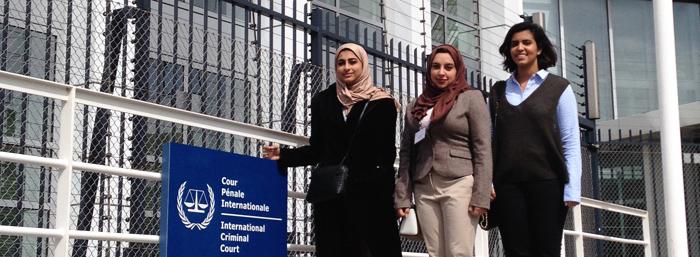- About
- Admissions
- Study at AUS
- Prospective Students
- Bachelor's Degrees
- Master's Degrees
- Doctoral Degrees
- Admission Publications
- International Students
- Contact Admissions
- Grants and Scholarships
- Sponsorship Liaison Services
- Testing Center
- New Undergraduate Student Guide
- New Graduate Student Guide
- File Completion
- New Student Orientation
- Payment Guide
- Executive Education
- Students with Disabilities
- Academics
- Life at AUS
- Research
- Contact Us
- Apply Now
- .

AUS teams tops in MENA region in International Criminal Court Moot Court Competition
A team from American University of Sharjah (AUS) was the highest ranking from the MENA region during the International Criminal Court Moot Court Competition held in The Hague, May 17-25, 2015.
Unlike many of the competing universities, AUS does not have a law school. Out of more than 60 university teams, AUS placed 29th.
According to its website, "the ICC Moot Court Competition welcomes universities from all over the world for a large-scale moot court simulating the proceedings of the International Criminal Court (ICC). The competition consists of an extensive six-day educational and social program, which brings together students of diverse backgrounds and cultures to The Hague to challenge their skills as future international lawyers."
The competition began in the fall semester, where the students were given a moot problem that dealt with contest sovereignty. The team had three speakers and two researchers. Each speaker had to write a memorial, of around ten thousand words, arguing their position. There was a prosecutor, government counsel and victim's representative.
The speakers were Hessa Taher, prosecutor; Shahd Qamhiyeh, government counsel; Nour Al Ali, victim's representative; and the researchers were Najla Al Zarooni and Noura Abahsain. The students were coached by Dr. Kevin Gray, Assistant Professor in International Studies.
After submitting their written memorials in February, the students began practicing for the oral rounds that took place in The Hague, where each appeared before a set of judges twice. The students were sent their opponents' memorials in April.

